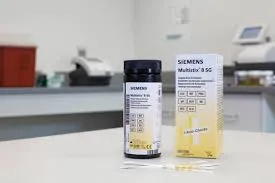feb . 17, 2025 19:35 Back to list
empty abs plastic cassette
The demand for rapid test kits has surged, especially with the rise of infectious diseases that necessitate swift diagnostic solutions. A critical component of these test kits is the ABS plastic empty cassette, which serves as the housing for lateral flow tests. Understanding the intricacies of these cassettes can provide valuable insights into their importance and quality in the context of test kit manufacturing.
From a manufacturing standpoint, cassettes made from ABS plastics offer versatility and cost-efficiency. The material readily undergoes injection molding processes, facilitating high-volume production with consistent quality. This is essential for manufacturers aiming to meet global demand without compromising the quality of their products. Furthermore, ABS plastic can be easily colored or labeled to align with brand identity or specific regulatory requirements, providing an edge in branding and compliance. The trustworthiness of a rapid test kit is significantly influenced by the reliability of its components. An ABS plastic empty cassette, despite being a seemingly humble component, must adhere to stringent regulatory standards. Manufacturers must ensure that each batch undergoes rigorous quality checks to meet international safety and efficacy standards. Such compliance not only assures healthcare providers of the product's validity but also strengthens consumer trust. Aside from its technical value, the environmental impact of ABS plastic is an ongoing concern within the healthcare industry. While there are challenges associated with plastic waste, innovations are being explored to enhance the recyclability of ABS plastics. Efforts are being made to develop biodegradable alternatives or heightened recycling processes to alleviate environmental footprints. Buyers and stakeholders look for manufacturers committed to sustainability, recognizing the added value of eco-friendly practices alongside technological advancements. In conclusion, ABS plastic empty cassettes are a cornerstone of rapid test kits, embodying the values of accuracy, reliability, and ease of use. Their role transcends mere containment, providing essential structural integrity and facilitating diagnostic precision. Amid evolving health challenges, these cassettes are instrumental in rapid tests' aptitude to deliver dependable results promptly. For stakeholders, embracing both technological expertise and environmental responsibility in the production of these components will be crucial as demand continues to expand worldwide.


From a manufacturing standpoint, cassettes made from ABS plastics offer versatility and cost-efficiency. The material readily undergoes injection molding processes, facilitating high-volume production with consistent quality. This is essential for manufacturers aiming to meet global demand without compromising the quality of their products. Furthermore, ABS plastic can be easily colored or labeled to align with brand identity or specific regulatory requirements, providing an edge in branding and compliance. The trustworthiness of a rapid test kit is significantly influenced by the reliability of its components. An ABS plastic empty cassette, despite being a seemingly humble component, must adhere to stringent regulatory standards. Manufacturers must ensure that each batch undergoes rigorous quality checks to meet international safety and efficacy standards. Such compliance not only assures healthcare providers of the product's validity but also strengthens consumer trust. Aside from its technical value, the environmental impact of ABS plastic is an ongoing concern within the healthcare industry. While there are challenges associated with plastic waste, innovations are being explored to enhance the recyclability of ABS plastics. Efforts are being made to develop biodegradable alternatives or heightened recycling processes to alleviate environmental footprints. Buyers and stakeholders look for manufacturers committed to sustainability, recognizing the added value of eco-friendly practices alongside technological advancements. In conclusion, ABS plastic empty cassettes are a cornerstone of rapid test kits, embodying the values of accuracy, reliability, and ease of use. Their role transcends mere containment, providing essential structural integrity and facilitating diagnostic precision. Amid evolving health challenges, these cassettes are instrumental in rapid tests' aptitude to deliver dependable results promptly. For stakeholders, embracing both technological expertise and environmental responsibility in the production of these components will be crucial as demand continues to expand worldwide.
Latest news
-
Dengue NS1 Rapid Diagnostic Test Kit
NewsMar.07,2025
-
Dengue NS1 Rapid Diagnostic Test Kit
NewsMar.07,2025
-
Dengue NS1 Rapid Diagnostic Test Kit
NewsMar.07,2025
-
Transferrin Rapid Test Cassette Tumor Marker TF Card
NewsMar.07,2025
-
Malaria Pf Pan Rapid Diagnostic Test Kit
NewsMar.07,2025
-
malaria pf / pan ag rapid test
NewsMar.07,2025

